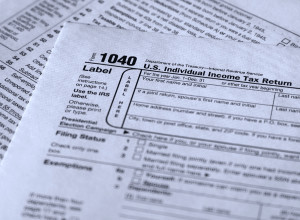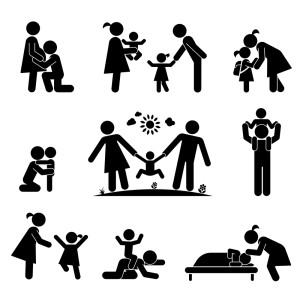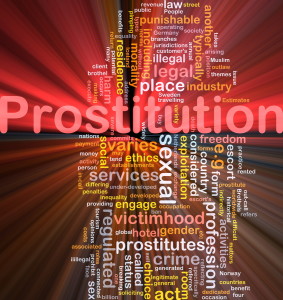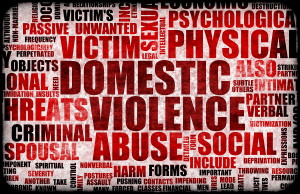A study published by researchers from the University of Portsmouth, UK and the University of Sussex, UK in 2014 studied the behaviors of ex-burglars and postgraduate students who had never participated in a burglary. This study was particularly significant because it used a real house and a house simulated on a laptop unlike prior studies, which often relied on interviews and map-based surveys. Each of the twelve participants in the study participated in a mock burglary of a home and a simulated burglary on the computer. Interestingly, the researchers confirmed many of their observations as well as information from existing research. The ex-burglars had each committed many burglaries before and were recruited to the study through advertisements. The study found that they all entered the home and the simulated home through the rear of the house while the students entered through the front door. The front door was exposed to…
Read MoreTelephone fraud, also known as telemarketing fraud, covers a wide range of crimes. The common goal of such fraud is to deceive the victim into parting with money or valuable personal information, such as bank accounts and credit card numbers. Commonly reported phone scams include: Pyramid schemes: Victims are persuaded to buy into a business model that promises high returns but never delivers. Charity fraud: This scam solicits charity donations under fraudulent circumstances. Checking account fraud: Con artists deposit counterfeit checks, counterfeit bank or money orders in a victim’s bank account and ask them to wire funds to another party. Eventually, the victim’s bank will freeze their account and leave them responsible for the money. Travel fraud: Victims pay small sums to cover taxes and fees on a vacation prize, only to learn that no vacation exists. Advance Fee Fraud: This common ruse cons victims into paying a small fee…
Read MoreThe criminal justice system in New York often takes a heavy-handed approach to probation violations. Anyone convicted of a VOP, or a violation of probation, can face a heavy fine and incarceration for the duration of their original sentence. Probation vs. parole Although often confused, the two conditions are not the same. Parole is an early release from prison while probation is a set of guidelines and rules that will keep you out of jail if you comply with them for a specified duration. Under NY Penal Law §65.00, the length of any given probationary period depends on the classification of your criminal offense, from up to one year for Class B misdemeanors (except those involving public lewdness) all the way up to 25 years for Class A-II drug felonies. New York criminal court judges tend to grant probation to those who do not pose a public safety risk. Other…
Read MoreMany individuals in New York make the mistake of trusting their friends, relatives or colleagues for advice about to how to handle their criminal case. This can be a huge mistake. While some people might claim to be experts on many different types of criminal cases, they likely do not have the education or training necessary to actually tell you what is true about how your case will unfold. Yet, many of these so-called “experts” will still give you plenty of advice and suggestions about how to move forward. The only individual that you should take advice from after you have been arrested for any crime in the state of New York is your criminal defense attorney. This is because a criminal defense attorney has an ethical responsibility to keep you informed about your case and has the training and the background necessary to properly represent you. There are simply…
Read MoreOn March 10, 2016, the Manhattan District Attorney’s Office and New York City Police Commissioner confirmed the indictment of 20 defendants for their individual roles in two drug trafficking organizations responsible for distributing heroin and PCP in Manhattan and the Bronx. Detectives executing the search warrants seized, among other things, 14 kilograms of heroin, 14 firearms, and over $100,000 in cash. If found guilty on the heroin possession charges, the defendants could be sent to prison for up to 30 years. Heroin is classified as a Schedule I drug because it is highly addictive and has no accepted medical purpose in the United States. For that reason, authorities are especially harsh when it comes to punishing those who are charged with possession, distribution, or sale. If you are caught possessing heroin in New York, you face heavy fines and possibly decades in prison. The penalties depend on how much you…
Read MoreLast July, John Cisneros, who prepares taxes, was indicted for preparing fraudulent returns and defrauding the New York State Department of Taxation and Finance. Cisneros, who was charged in New York State Supreme Court, faced several counts, including Criminal Tax Fraud in the First, Second, and Third Degrees. He is said to have prepared more than 1,000 fraudulent tax returns between 2009 and 2014. His clients received refunds that they were not entitled to and in most instances underpaid their taxes substantially. Criminal tax fraud encompasses a broad range of offenses that cheat the government out of taxes owed. Examples include: Willful failure to file a return Willfully filing a false return Intentionally failing to report all income Knowingly claiming unauthorized deductions Tax fraud crimes and their penalties range in severity from Criminal Tax Fraud in the Fifth Degree, a misdemeanor punishable by up to a year in prison, to…
Read MoreUnderage drinking is an offense that can have serious repercussions on a young person’s future, especially when motor vehicles are involved. Although less than 10% of all licensed drivers in New York State are under 21, the Foundation for Advancing Alcohol Responsibility states that they still account for 14% of all drunk driving fatalities. For this reason, underage drinkers can have a more negative social image than their adult counterparts and can encounter harsher penalties. The Alcoholic Beverage Control Law states that anyone under 21 who purchases or attempts to purchase alcoholic beverages can be ordered to pay a $100 fine and perform up to 30 hours of community service. Second offenders face a fine of up to $350 in addition to community service. Anyone with two or more underage drinking charges on their record can be fined up to $750, ordered to do community service, and be required to…
Read MoreIn today’s digital era, many of us are under some form of surveillance as we go about our daily business: traffic cameras on the street and security cameras in retail establishments come to mind. Some forms of surveillance, however, are illegal. Unlawful surveillance takes place when someone installs a hidden camera in a place where one can reasonably expect privacy and uses it to watch or record someone else while they are undressing, using a restroom, or in any situation where intimate parts of their body can be seen. This surveillance occurs without their knowledge or consent and is sometimes done to deliberately abuse or degrade the person. If you are charged with Unlawful Surveillance in the Second Degree (New York Penal Law 250.45), a class E felony, you could face up to four years in prison should you be convicted. The punishment can be more severe if you already…
Read MoreEarly on the morning of July 20, 2014, two NYPD officers approached a man in the lobby of a New York City Housing Authority building on Park Avenue, near 105th Street in East Harlem. The man, 26-year-old Joseph Pica, attempted to run for the lobby exit, but a female officer grabbed his sweatshirt when he pushed past her. He broke free during the ensuing struggle and ran down a flight of steps. In the process, the officer fell face-first onto the steps and suffered both facial injuries and broken teeth. Pica later pleaded guilty in New York State Supreme Court to Assault on a Police Officer and was sentenced to five years in prison. A person can be charged with assault on a police officer in New York State, under NY Penal Law 120.08, if he or she attacks someone that they knew or should have known to be a…
Read MoreAccess device fraud, otherwise known as Criminal Use of an Access Device, is the fraudulent use of a card, account number or any other means of illegally accessing an account in order to transfer funds or obtain money, goods, or services. Examples include using someone’s debit card without their permission or using a counterfeit credit card to make purchases. Cases of access device fraud seem to be coming before the courts more frequently these days. On February 18, 2015 former NYPD officer John L. Montanez was sentenced to 28 months in prison for access device fraud and aggravated identity theft. Montanez had agreed to provide another co-defendant, who later cooperated with law enforcement, with unsuspecting victim’s names and driver’s license numbers in return for stolen items. A search of his locker at his precinct yielded 16 identification documents in various victims’ names, such as driver’s licenses, Social Security cards and…
Read More“Child abuse” is a term used to describe serious crimes committed against children. They include but are not limited to, sexual assault, physical injury and the threat of physical injury. Individuals that have committed acts of child neglect or abuse can be charged with one or more of the following crimes: Endangering the welfare of a child Abandonment of a child Sexual Abuse Assault You can be charged with Endangering the Welfare of a Child if the police believe you knowingly enabled a child under seventeen to be mentally, physically or morally injured. Examples include leaving your toddler in a parked car while you go shopping, failing to supervise your child in a dangerous situation (ie. allowing a young child near a burning stove), or providing your teenager with drugs or alcohol. Endangering the Welfare of a Child is a Class A misdemeanor punishable by a fine and up to…
Read MoreOn January 28, 2016 Manhattan District Attorney Cyrus Vance announced the conviction of Damon Hayes, 45, for running a sex trafficking operation in January, 2014. The ring included Yolanda Ostoloza, 41, who was charged separately, and her 15-year-old daughter, whom Hayes had forcibly trafficked. The New York jury found him guilty of all charges in the indictment, including Endangering the Welfare of a Child, Promoting Prostitution in the Second and Third Degrees, and Sex Trafficking. He will be sentenced on February 16, 2016. All of New York State’s prostitution laws target offenses that arise from the unlawful act of participating (or agreeing to participate) in sexual activity with another person for money. In addition to sex trafficking, related crimes include promoting, compelling, or permitting prostitution, and patronizing a prostitute. In March of 2015, the New York State Assembly passed legislation that mandated tougher penalties for sex traffickers. The offense was…
Read MoreNew York State law defines domestic violence as: “A pattern of coercive tactics, which can include physical, psychological, sexual, economic and emotional abuse, perpetrated by one person against an adult intimate partner, with the goal of establishing and maintaining power and control over the victim.” In essence, a person is guilty of domestic violence in New York if they abuse, or threaten to abuse, any of the following: Spouse Former spouse Common-law partner A person with whom they had a child Someone with whom they are in an “intimate relationship” Domestic violence also applies to a broad range of abusive crimes, such as: Assault (punching, hitting, kicking the victim) Stalking (following the person, monitoring their personal correspondence, etc.) Menacing (threatening to hurt the other person) Criminal mischief (damaging the victim’s possessions) Aggravated harassment (sending threatening texts, etc.) Aggravated criminal contempt (violating an order of protection) Endangering the welfare of a…
Read MoreOn January 21, 2016 Manhattan District Attorney Cyrus R. Vance, Jr. confirmed the indictment of Chester Taylor, Daniel Persaud, and nine other defendants for making over $700,000 worth of fraudulent bank withdrawals. Because they allegedly impersonated legitimate account holders to access the money, they were (in addition to other offenses) charged with Identity Theft in the First, Second, and Third Degrees. Identity theft has been increasing in frequency, thanks to the standardization of electronic access to funds and payment methods. The majority of these crimes involve debit or credit card fraud and stolen Social Security and bank account numbers. Under New York law, identity theft can be a felony or misdemeanor, depending on the circumstances. If you intentionally assume another person’s identity to obtain money, property, or services, you can be found guilty of Identity Theft in the Third Degree, which is a class A misdemeanor punishable by up to…
Read MoreMotor vehicle theft is a crime that has been aggrandized in rap songs, video games (Grand Theft Auto), and other aspects of popular culture. In New York State, however, stealing any car valued greater than one hundred dollars, whether it is a banged-up Chevy or a mint-condition BMW, will likely get you arrested for violating New York Penal Law 155.30(8). Theft of a motor vehicle (this category does not include motorcycles) worth more than $100 is automatically a felony, but the degree depends on how much the car is worth. If the stolen vehicle is valued at more than $3,000, you can be charged with Grand Larceny in the Third Degree, a Class D felony. Because there is no minimum sentence for a first-time nonviolent offender, the penalty could be anything from a conditional discharge, probation or fine, to a possible prison sentence of up to four years. If the…
Read MoreFemale homicide, or the murder of women, is what is known as “femicide.” Some scholars argue that the term should only refer to gender-biased killings while others include that categorization in the term “gendercide.” In 2009, there were 13,636 victims of homicide in the United States. The FBI has found that approximately three times as many men as women are killed in homicides. The New York City Department of Health and Mental Hygiene analyzed data from homicides across the city and found several key trends specifically related to femicides. From the data, we learn that many femicides occur indoors and inside the victim’s home. There is also a higher rate of homicide by current and former intimate partners in women in comparison to men. Femicides have been on a steady decline in New York City. Still, many are related to incidents of domestic violence. Within the city, femicides tend to…
Read MoreIf you speak to your New York criminal defense attorney and determine that you will, in fact, be pursuing a jury trial, then it may be beneficial for you to understand how important jury selection is and how it can influence the ultimate outcome of the case. In order to prepare for jury selection, your attorney will need to determine the kind of person that he or she wants as a juror for your case and should work diligently during the jury selection phase of the case, also known as “voir dire.” Your New York criminal defense attorney will handle most of the legwork at this stage of the case. The essential process of jury selection is to determine what makes the jurors “tick”. You may want your attorney to ask specific questions about some of the facts associated with the crime or crimes you are accused of, but your…
Read MoreThe Sixth Amendment is part of the Bill of Rights, which is a grouping of the first ten amendments to the U.S. Constitution. The Bill of Rights was designed to ensure a variety of personal liberties to Americans. The Sixth Amendment lays out the basic rights of a person accused of a crime. It reads: “In all criminal prosecutions, the accused shall enjoy the right to a speedy and public trial, by an impartial jury of the State and district wherein the crime shall have been committed, which district shall have been previously ascertained by law, and to be informed of the nature and cause of the accusation; to be confronted with the witnesses against him; to have compulsory process for obtaining witnesses in his favor, and to have the Assistance of Counsel for his defense.” There are numerous reasons that a speedy trial for an individual accused of a…
Read MoreObstruction of justice is a crime that applies to a broad range of actions and omissions. Strictly speaking, it refers to the act of intentionally obstructing or interfering with the work of law enforcement professionals, regulatory bodies, and government representatives. Below are some scenarios that can potentially meet the definition of obstruction of justice. Tampering with or destroying evidence in a police or government investigation Lying to the police and/or government officials during an investigation Interfering with an arrest Bribing or threatening witnesses, court officials, and or jurors It’s a crime that has been attributed to both average citizens and government leaders. Former President Richard Nixon was accused of obstructing justice by covering up the Watergate Hotel incident during his 1972 reelection campaign. Another ex-President, Bill Clinton, was investigated for allegedly concealing evidence in the Paula Jones lawsuit for sexual harassment. In New York State, the penalties for obstructing justice…
Read MoreImagine this scenario: You and your best friend are at a trendy Manhattan bar when he sees his ex-girlfriend with someone new. A confrontation ends with your buddy punching out his replacement. The police arrive, and before long your friend is at 100 Center Street, awaiting arraignment for assault in the third degree. And so are you. True, you never actually touched the victim. All you did was yell verbal comments at him while your friend beat him up. But now you need a criminal defense attorney, thanks to New York Penal Law Section 20.00, which expressly states that one person is liable for the acts of another when, with the mental state required for the commission thereof, he intentionally aids, commands, or requests someone else to engage in a crime. Examples of activities that can be construed as the acts of an accomplice include: Shouting at and taunting a…
Read More


















